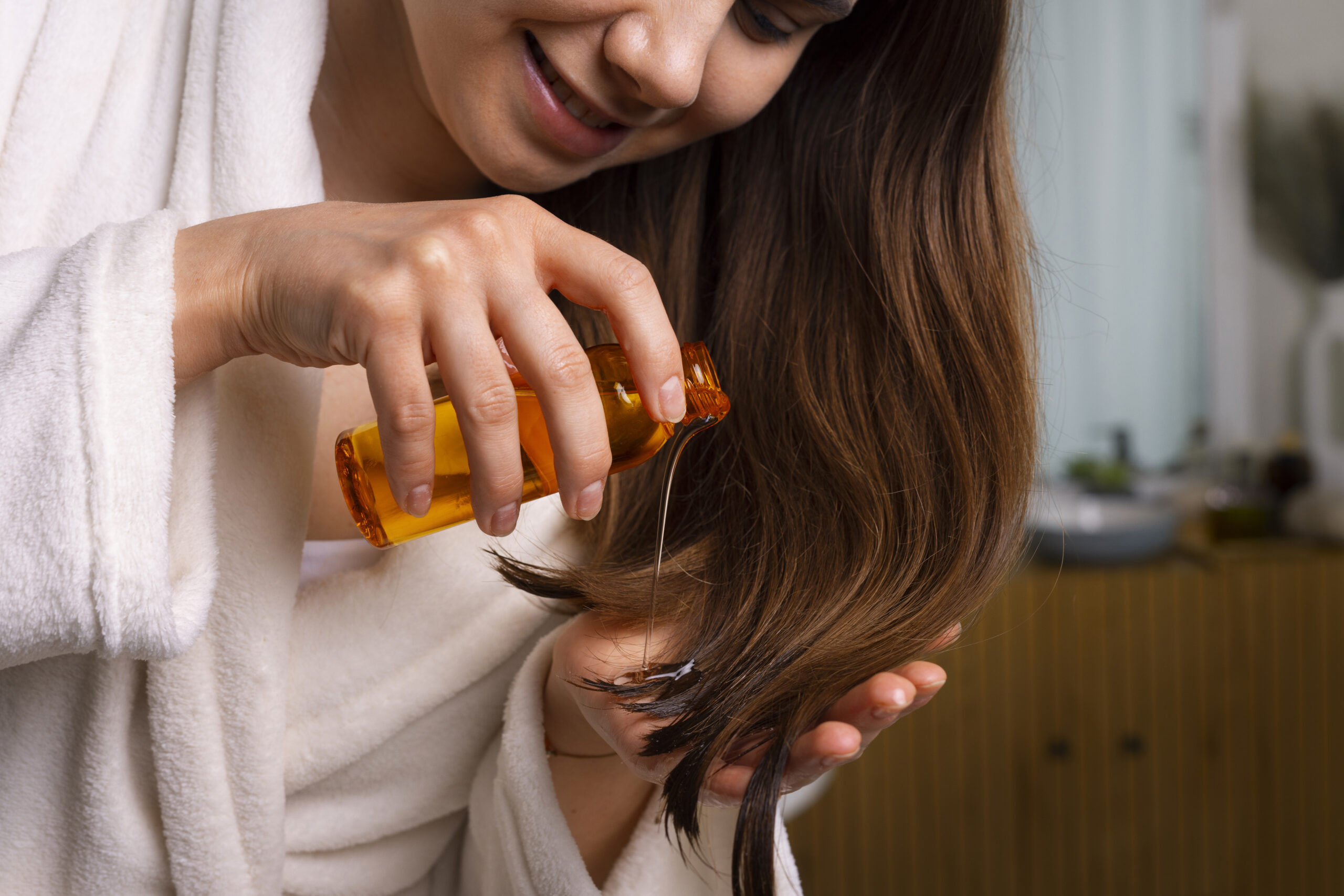Long, glossy hair has always been associated with youth and attractiveness. Even if your hair’s development and health are mostly determined by genetics, you can still affect its state by giving it the right nutrition and care. In this sense, natural oils have been utilised for millennia to strengthen hair follicles, encourage hair growth, and enhance general hair health. The top five natural oils for hair development will be discussed in this post; each one has certain advantages for your tresses.
Cane Oil:
Castor plant seeds (Ricinus communis) yield a thick, rich oil known as castor oil. Because of its amazing capacity to promote hair thickness and development, it has become incredibly popular in the hair care industry.
Castor oil’s high content of ricinoleic acid, which has anti-inflammatory and antibacterial qualities, is what gives it its ability to nourish hair. By improving blood flow to the scalp, it makes sure that hair follicles have enough oxygen and nutrients to grow as best they can.
The fatty acids in castor oil, including the Omega 6 and Omega 9 fatty acids, help coat and thicken hair shafts, lowering the possibility of breakage and split ends. Furthermore, it can aid in the fight against dandruff and other scalp issues that could impede the growth of hair because to its antibacterial qualities.
Coconut Grease:
For millennia, people in tropical climates have used coconut oil, a multipurpose natural oil, to care for their skin and hair. Rich in fatty acids, vitamins, and minerals that support hair development and general health, it is extracted from coconuts.
By penetrating hair shafts, coconut oil retains moisture and stops protein loss, both of which can cause breaking and damage to hair. Since keratin, the main protein that makes up hair, is lost less frequently when using coconut oil, the result is stronger, healthier hair.
Additionally, it possesses inherent antifungal qualities that may aid in the fight against dandruff and scalp infections, both of which can impede the growth of hair.
Avocado Oil:
Argania spinosa, a native of Morocco, produces the kernels from which argan oil, sometimes known as “liquid gold,” is extracted. This opulent oil is a great option for encouraging hair development and adding shine to your locks because it is loaded with vitamins, antioxidants, and important fatty acids.
Vitamin E, which is abundant in argan oil, supports healthy hair growth by nourishing hair follicles. Additionally, it has antioxidants that help moisturise and calm the scalp, lowering inflammation and fostering a favourable environment for hair growth.
Neem oil:
The jojoba plant, Simmondsia chinensis, is indigenous to arid parts of the southwestern United States and Mexico. Its seeds are used to make jojoba oil. This oil is a great option for encouraging hair growth and keeping a healthy scalp because it closely mimics the natural sebum produced by our skin and scalp.
Jojoba oil aids in controlling sebum production, preventing overly oily or dry skin that may stunt hair development. In addition, it possesses inherent antibacterial and antifungal qualities that can aid in maintaining a clean and infection-free scalp.
Oil of rosemary:
For generations, people have utilised rosemary oil, which is derived from the leaves of the Rosmarinus officinalis plant, to enhance hair health and growth. It has several ingredients, such as rosmarinic acid, which stimulates hair follicles and increases blood flow.
It is thought to block the synthesis of dihydrotestosterone (DHT), a hormone connected to hair loss, strengthening hair and preventing premature hair loss.
In summary:
Many people want to grow their hair in a healthy, vibrant way, and natural oils can be helpful partners on this path. The five natural oils covered in this article—jojoba, coconut, argan, rosemary, and castor—each have special advantages that help to maintain the general health of your hair and scalp and encourage hair development. By using these oils in your hair care regimen, you can successfully and naturally get the long, gorgeous locks you’ve always wanted. To make sure you don’t experience any negative reactions, always remember to do a patch test before using any new oil. If you have any specific concerns about the health of your hair and scalp, seek the counsel of a dermatologist or other hair care specialist.

